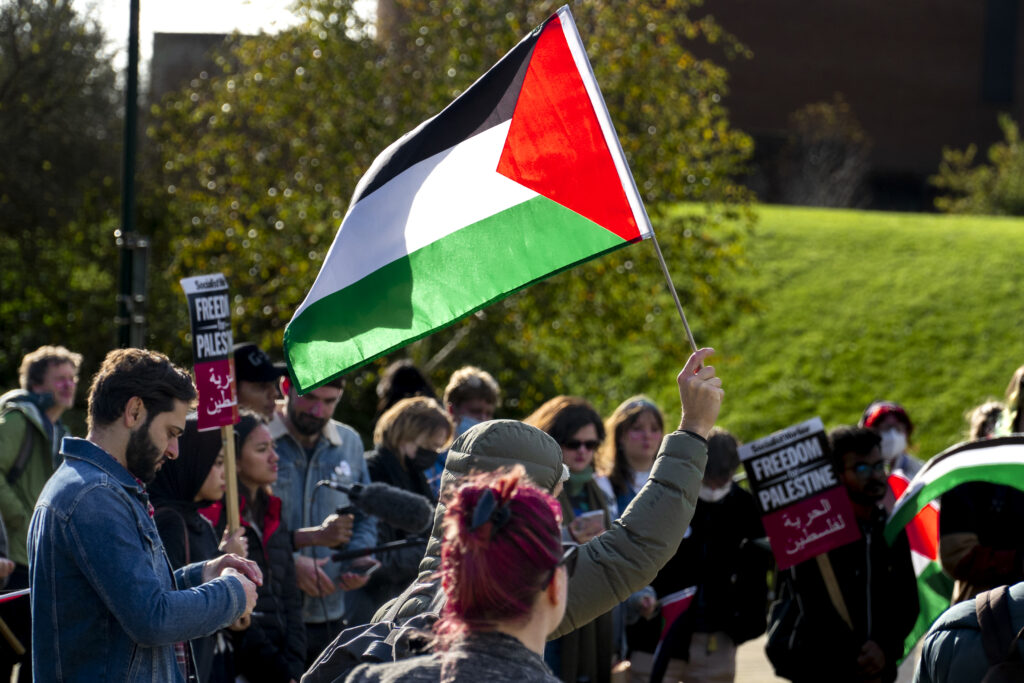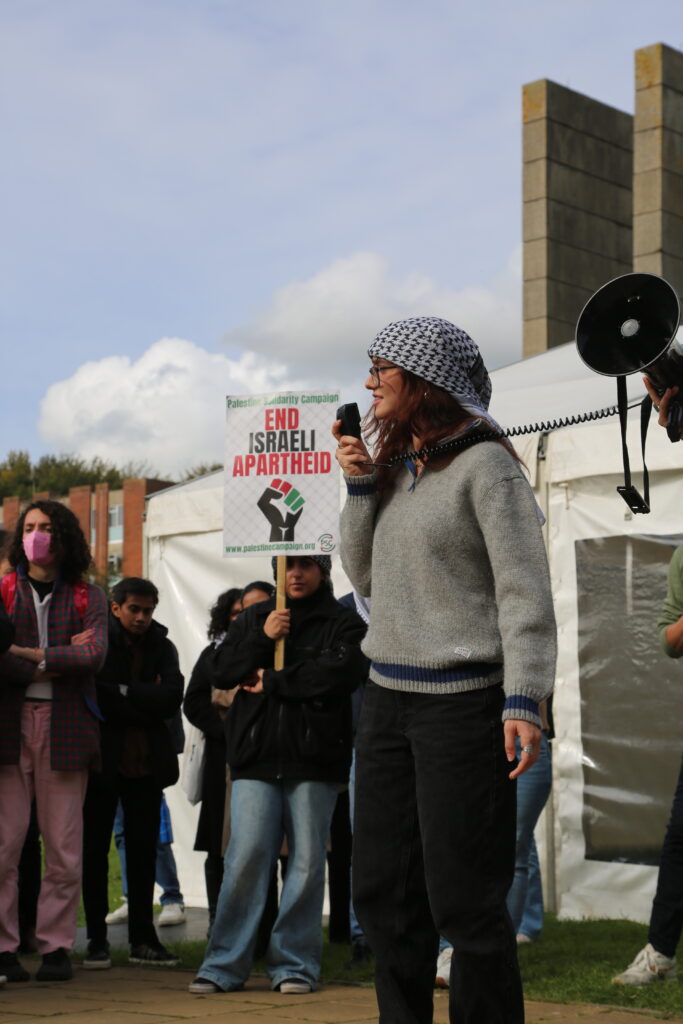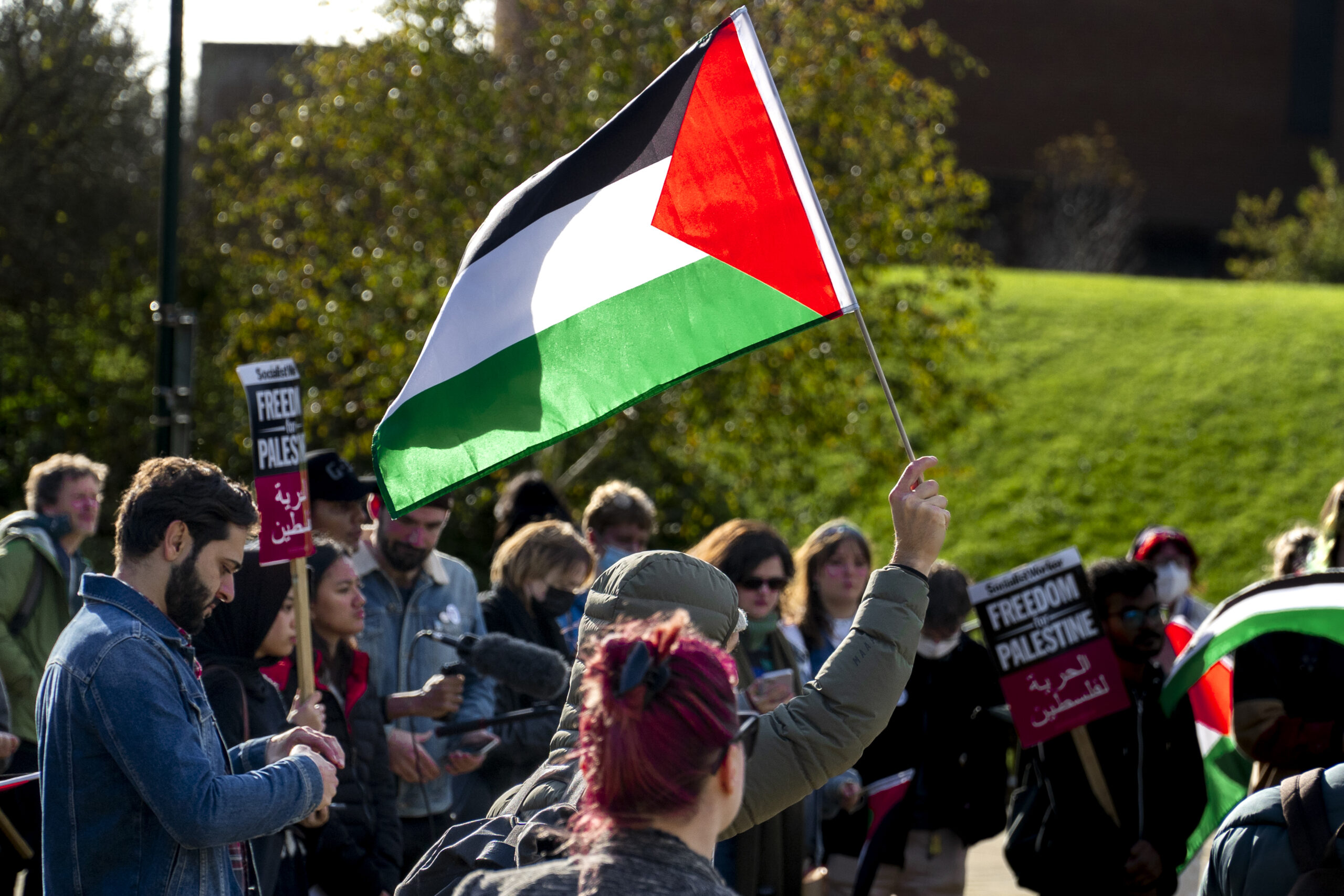Amid the weekly rally held on Mondays in Library Square, Zeena (who requested her surname be omitted), a third-year Palestinian student at Sussex, stepped away from the demonstration to take a call. An hour later, she returned to the mic, her face already showing the conversation’s impact. She had just spoken with a friend in Palestine. She told the crowd of having their conversation repeatedly interrupted by bombs detonating on the other end. Pain drenched her words. When she spoke of the fear of not hearing from her friend again, that pain spread throughout those gathered – despite being nearly 8000 km away, the month-old war is still close to many students here on campus.
The rally on 6 November was the Friends of Palestine (FOP) Society’s fourth on campus. For four hours, leaders of the organization, and community members addressed the crowd. Telling stories of their Palestinian friends and families affected by the war, and personal views on the conflict, they called to the dozens of passersby and listeners to take action— speak out.
“We want to raise awareness,” said Zeena in an interview with The Badger afterward. “We want to make sure that our voices are heard.”
Though her family is from Haifa, they relocated after being removed from their home like many others. To her, joining the FOP was barely a decision.
“This is not news to me, this has been going on for as long as I can remember,” she said. “I can still remember my mom pointing at the TV being like, ‘Oh, look at what they’re doing in Palestine’ when I was six years old.”

Only a handful of the speakers that day had as direct connections to the conflict as Zeena, but when an open mic was offered to the crowd, students and Brighton locals alike made it known that the Palestinians had many friends on campus. With a crowd of around 40 being maintained throughout the demonstration, and many more students pausing on their way to class to listen in, the impact of the gatherings is clear.
FOP is becoming a felt presence on campus now, but it isn’t by accident. Mo Nasser, the current president of the society has been working hard to grow the organisation.
“We’re going to do a lot more. Even if there was no war, I would still have the same agenda,” Nasser stated, referring to the uptick in events such as these rallies, social events, and trips to other protests in the UK like the major gathering in London on 11 November. “Our focus is raising awareness, mainly to people that don’t know, and mainly to people that sort of oppose us.”
Like many Palestinians, Nasser’s family history includes displacement and relocation from their original home, which makes the violence happening in Gaza and the West Bank even more personal.
As power and communication blackouts are prevalent throughout the conflict zone, there is little those on the outside can do to ensure the well-being of those living there “I’ve been praying for them. I’m a Muslim, I’m a believer. I just, I pray for them,” Nasser said. “God knows best.”
Throughout the demonstration, Nasser, Zeena, and all of the speakers stressed the importance of vocally standing for the rights of the Palestinian people— that having these public demonstrations is essential for raising awareness in the minds of those who feel it’s not important to educate themselves.

The night of the rally, the Sussex Student Union Council met and unanimously passed a motion of solidarity with the Palestinian people. Among other things, the motion called for an immediate end to the conflict, and for the University to uphold its principles of courage and integrity regarding the conflict. It also opened the door for the Student Union to support the efforts of students campaigning for the cause at the university.
Nasser and the FOP were encouraged by the council’s decision, but Nasser told The Badger that they still hope to see more from the university itself.
“I would love to see the uni take an official stance standing with Palestine. Because no matter who the students are, I don’t think any student stands for the killing of innocent people.”

